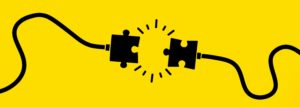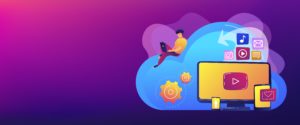The healthcare industry needs to keep abreast with changing medical practices and compliance regulations. Failing to do may affect the delivery of optimum patient care and lead to compliance violations. To remain effective, companies invest in the training and development of employees using modern healthcare learning management system. The utilization of right LMS tools helps to drive learner engagement, knowledge retention, business performance, and overall ROIs.
Organizations are adopting innovative e-learning solutions to enable doctors, clinicians, and other healthcare professionals undergo training even on the go. Learning across personalized mobile devices gives the flexibility to learn anytime and anywhere. With the evolution of drugs, medical equipment, and procedures, it is crucial to train the workforce in a simulated environment. E learning for healthcare provides a gamut of benefits, including:
- Healthcare companies deliver mobile-enabled courses compatible with both Android and iOS. As a result, doctors and clinicians undergo training at their own pace of time and convenience, even offline.
- As healthcare professionals have a short attention span, they prefer learning on the go. So, they access training courses on their smartphones and tablets to seek relevant information on their fingertips. Consequently, it improves overall employee engagement, knowledge retention, and learning uptake.
- The 21 Part 11 compliant healthcare learning management system provides a regulated training platform to share confidential data. It also supports automated report generation and performance tracking during compliance training programs.
- The simulation-based learning approach is adopted to train doctors in a risk-free environment. It aids clinicians and healthcare experts to receive hands-on experience to avoid any mistakes in critical medical cases.
- Companies incorporate videos so that learners can easily understand different policies and regulations of the healthcare industry. Compliance, when explained in the form of live and engaging videos, results in better retention, performance, and improved ROIs.
- Modern LMS also integrates with Customer Relationship Management (CRM), Human Resource Management System (HRMS), and others to collate Key Performance Indicators (KPIs). Based on the analysis of KPI data, the LMS identifies the gaps and accordingly assigns relevant training to pertinent need.
Employee training is a significant aspect of the healthcare sector. As the industry needs to ensure the well-being of patients, it is essential to deploy robust LMS to ensure delivery of optimal patient care and follow effective medical practices. Companies in this sector need to train clinicians and healthcare professionals with the highest standards to stay competitive in today’s marketplace. Using robust LMS for healthcare serves as a viable solution to bridge knowledge gaps, accelerate organizational performance, improve retention, and deliver good quality patient care. If you want to invest in the new-age healthcare learning management system, then G-Cube LMS can perfectly suit your needs. G-Cube is offering a complete learning suite comprising of G-Cube LMS, Learning and Performance Platform (LPP), and Learning Experience Platform (LXP). The proprietary LMS stands apart with the support of features such as Business Intelligence (BI) tool to generate automated reports, video-based learning for better retention, and mobile apps for varied job roles (learner, trainer, and manager). If you want to know more, write to us at in**@gc**********.net.








